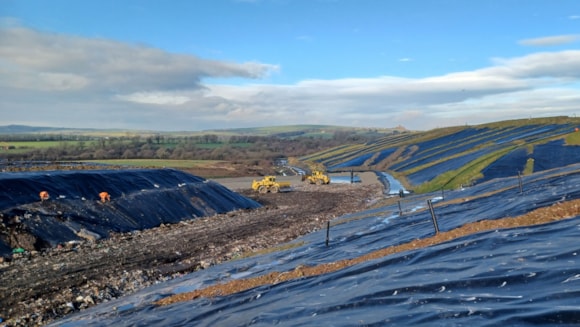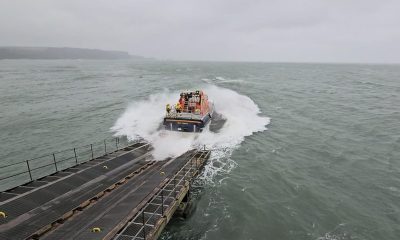News
Underage drinking’s link to crime


Young people: More likely to binge drink
IN THE PAST two years, 1,229 alcohol-related crimes have been committed by children in Wales.
Details of the crimes – which range from rape and assault to criminal damage and possession of a weapon – were made public following a Freedom of Information request from the Welsh Conservatives.
‘A RUINOUS EFFECT ON YOUNGSTERS’
The data from each of Wales’ four police forces show that children as young as 10 are accessing alcohol and committing violent crime.
Between 2014 and 2016, North Wales Police reported 375 incidences of crime committed by people aged 18 and under; South Wales Police reported 250 incidences; Dyfed-Powys Police reported 182; while Gwent Police reported 105 incidences in the last year alone.
Prevalence of crimes committed by underage drinkers was highest in Carmarthenshire (137 arrests), followed closely by Wrexham (113 arrests), then by Bridgend (106 arrests).
Some of the more disturbing crimes recorded were 11 accounts of rape in North Wales – with one offender aged just 13; five offences of racially or religiously aggravated incidences in South Wales, including actual bodily harm and beatings; 10 offences of drug possession in Dyfed-Powys; and four arrests for drink driving in Gwent.
Angela Burns AM, Welsh Conservative Shadow Secretary for Health, said: “It’s clear from the data that alcohol is having a ruinous effect on many Welsh youngsters and the communities in which they live.
“As these crimes demonstrate, underage drinking is fuelling some heinous antisocial behaviour at a huge cost to the public purse and to the victims they affect.
“A criminal record also carries a cost; an offender’s life prospects are likely to be significantly diminished, affecting employment opportunities and even car insurance premiums.
“Police forces and health services need to work much more closely with schools to develop an effective programme of education warning children against the dangers of substance misuse.
“The numbers make plain the fact that the Welsh Government’s strategy for tackling substance misuse is failing far too many of our most vulnerable members of society.
“More focus should be placed on empowering communities to respond to their problems, which are often unique in nature and in scale to their locality.”
COSTS OF ALCOHOL ABUSE ‘INCALCULABLE’
Mark Isherwood AM, Shadow Secretary for Social Justice, said: “The cost to society of alcohol abuse is incalculable and is often a contributory factor in poor health, unwanted pregnancy and, as these figures show, youth crime.
“The deep-rooted causes of underage drinking must be tackled through interventions that are targeted at children and young people most vulnerable to this kind of behaviour – before they take a collision course with the law.
“The Welsh Government needs to work far better with headteachers and the voluntary and independent sectors to find innovative and joined up solutions to this unacceptable antisocial issue.”
YOUNG DRINKERS ALSO VICTIMS
At first glance, official figures on drinking habits indicate that, in recent years, while young people have been drinking above the average unit consumption per week, they now drink less than the UK average. Young people also drink fewer times during the week than most other age groups. But when they do drink, a significant proportion engage in heavy episodic or ‘binge’ drinking. The most notable example of this is among young women; the highest age-specific proportion of female binge drinkers are in the 16- to 24 year-old age bracket.
These current trends are at odds with the wider historical overview of young persons’ alcohol consumption in the UK.
In the interwar period, they were the lightest drinkers in the adult population and the group most likely to abstain. Nor did alcohol play a significant part in the youth culture that came into existence in the 1950s, this being more likely to involve the coffee bar than the pub.
It was not until the 1960s that pubs and drinking became an integral part of the youth scene. By the 1980s, young people had become the heaviest drinkers in the population, and the group least likely to abstain. This has resulted in continuous rises in the number of admissions to hospitals over the past decade, and in the case of females aged between 15 and 34, a doubling in the rate of alcohol-related deaths in the last 20 years.
A number of academic studies have found links between young people drinking and being involved in fights, sustaining injuries and committing violent crime. Frequent, heavy or problem drinking in 15 and 16-year-olds is associated with violent but not property offences, while other research has found a diagnosis of alcohol abuse or dependence is associated with both.
Survey evidence also suggests that teenage drinkers are more likely to carry weapons. Conversely, it has been shown that 11 to 16 who drink more or are more frequently drunk are more susceptible to being the victims of violent attacks.
MISUSE OF ALCOHOL PRIORITISED
The Herald put the Conservative’s statement to Dyfed-Powys Police, and Temporary Chief Inspector Dyfed Bolton told us: “Alcohol misuse and related crime is an issue that the police face in every area and Dyfed-Powys is no exception. Misuse of alcohol by young people is prioritised and there are initiatives in place to try and tackle this and ensure young people don’t get involved with alcohol in the first place.
“Officers regularly visit local schools as part of the All Wales School Liaison Core Programme, and this offers a series of lesson plans addressing key areas of concern around substance misuse. The programme also aims to deter children from crime, and sets out clearly the consequences of committing various crimes, as well as the harm alcohol and crimes have on them and others around them, not just in the short-term but also for their future.
“Reducing the harm caused by alcohol consumption is a priority for Dyfed-Powys Police, and we work with our partners to deliver lessons and provide support to youngsters on the serious consequences of under-age drinking and any associated anti-social behaviour and various crimes, and take further action where necessary. Hard hitting ‘Paul’s Pledge’ has also been delivered in schools and colleges throughout the force area to hammer home the devastating consequences of alcohol-related violent crime.”
AN ALL-TIME LOW
We approached the Welsh Government for a response to the Conservatives’ claims and a robust defence was offered of the Welsh Government’s record.
A spokesperson told us: “It is important to put these figures in context. Drinking among 11 to 15-year-olds in Wales has declined sharply since the late 1990s. It is now at a record low.
“We work closely with the Youth Justice Board on preventing young people from entering the youth justice system through early intervention and diversion – including those young people who misuse drugs and alcohol. We also ring fence £2.75m of our Substance Misuse Action Fund to provide support and services to children and young people in Wales.
“The All Wales Schools Liaison Programme goes into every primary and secondary school in Wales to raise awareness of the harm caused by substance misuse, including alcohol.”
DIRECT ACTION MUST BE TAKEN
Plaid Cymru Shadow Cabinet Secretary for Health and Social Care, Rhun ap Iorwerth, said: “Underage drinking can cause huge problems in society, and the accounts of alcohol-related crime released by the four police forces are very worrying.
“But as well as considering the impact of these crimes on the community, we must consider causes of such behaviour.
“We need to work with young people who are offenders, and Plaid Cymru has long called for greater emphasis on education in order to improve children’s welfare from the early years. Where children are found to be struggling, we want to maintain counselling services for them.
“But we also need to take direct action to stop young people drinking too much. The introduction of a minimum price for alcohol can help combat the very cheap and very potent alcohol that creates so many problems in our communities. Research shows that a price rise is often linked to a reduction in consumption, so this is something we need to consider.”
ALCOHOL MISUSE HAS DEVASTATING EFFECT
Regional AM Eluned Morgan responded to the Conservatives’ criticism by telling The Herald: “Alcohol and substance misuse can have devastating effects on individuals, families, and communities. Patterns of alcohol consumption are changing and it’s of great concern that increasing numbers of people are damaging their health through excessive drinking.”
She explained: “We need to focus on what drives people to misuse drugs or alcohol, whether the right national approach and local services are in place to raise awareness of their harms, and to give people help when they need it most. That’s why it’s so important that the Welsh Government is taking action at a strategic level in order to raise awareness of the harms associated with alcohol and substance misuse, as well as tackle them. Improved training may be also required for GPs – there has been an associated rise in the prevalence of alcohol related conditions.
“The Wales Bill, which I am leading on for the Opposition in the House of Lords, seeks to provide the Assembly with an appropriate set of powers to enable the Welsh Government to address problems such as those relating to alcohol and substance misuse. At the moment, the Assembly’s powers are limited by the UK Government. This is why it’s so important for the Wales Bill to add to the powers of the Government in Wales to act in a way which benefits the people of Wales, not roll them back as the Conservatives in Westminster are doing.”
Community
St David’s Day parade brings colour and celebration to Haverfordwest

HAVERFORDWEST town centre was a hive of activity today (Friday, Feb 27) as hundreds of children from schools across Pembrokeshire took part in a special St David’s Day celebration.
The popular parade, organised by the Pembrokeshire Language Forum, returned to the county town once again, with smiles all round from participants and spectators who lined the streets to watch.
Children paraded down High Street, through Bridge Street and along Quay Street, led by Samba Doc, before gathering at Picton Playing Fields for songs and dancing during an open-air jamboree with entertainer Tomos Tanllyd.
Pembrokeshire County Council Leader Cllr Jon Harvey said: “St David’s Day is always a special occasion in Pembrokeshire, and it was wonderful to see so many young people coming together to celebrate our language, culture and national identity.”
Cabinet Member for Education and the Welsh Language, Cllr Guy Woodham added: “The annual St David’s Day parade is a shining example of what schools in Pembrokeshire do to celebrate the Welsh language and culture, and they are certainly enthusiastic about it.”
Council Vice Chairman and Champion for the Welsh Language and Children and Young People, Cllr Delme Harries said: “It was fantastic to see such enthusiasm from pupils across the county, proudly celebrating St David’s Day.”
Local member Cllr Tom Tudor also praised the event, adding: “It really was a great celebration of St David’s Day and a highlight for Haverfordwest.”
Welsh Language Development Officer Catrin Phillips said the event continues to grow each year.
She said: “The St David’s Day parade, organised by the Pembrokeshire Language Forum, is always a highlight of the year and it’s wonderful to bring schools together to celebrate Welsh language and culture in such a joyful way.
“It has been especially encouraging to see new schools joining us this year, helping the event continue to grow.”
Crime
Axe gang stormed home as couple feared they would be killed, court hears

Five masked men smashed their way into property during terrifying late-night raid
A COUPLE feared they were about to be murdered when a masked gang armed with axes burst into their home, a jury at Swansea Crown Court has heard.
Five men dressed in dark clothing and balaclavas forced entry to the property shortly before 9:00pm on May 29, 2021, in what prosecutors say was a planned aggravated burglary. An emergency call was made at 8:51pm.
Prosecutor Mr Wright read to jurors a police statement from homeowner David Davies, who said he had been sitting with his partner, Carmen Bailey, when he heard loud banging at the front door.
“As I got to the entrance, the glass in the door was smashed and the men came through,” he said.
He described five intruders, all carrying axes. One of the men shouted: “Lay face down on the floor.”
Moments later, another voice yelled: “She’s on the phone,” after Ms Bailey contacted police. A further shout of “Let’s go boys” was then heard before the gang fled.
Mr Davies told officers that drawers throughout the property had been opened. Around £3,000 hidden in a spare room was not discovered, but two £50 notes were stolen along with a sanitary item and a Lloyds Bank paying-in book.
He attempted to follow the men as they left and saw the rear of a white SUV. Although his mobile phone had been smashed, it was still functioning.
In a later statement he described one suspect carrying a yellow-and-black rubber-handled axe, adding that another man “hopped out like a kangaroo” as he entered the property.
Ms Bailey said she was left utterly traumatised by the ordeal.
“I was absolutely petrified,” she said. “I felt like I was going to get murdered.”
She told police she could only see the men’s eyes through their balaclavas as she grabbed the house phone and called emergency services. A male voice shouted: “Where’s the money?”
The force of the attack shattered glass up to two metres into the hallway, the court heard.
A third witness, Doreen Jones, said she had phoned Mr Davies during the incident and heard male voices shouting: “Get down, get down.”
The investigation
Jurors were told that a white Nissan Juke — stolen in the Manchester area and fitted with cloned number plates — was later recovered near Paradise Nightclub in Pontardawe after the registration plates had been removed.
Several other men have already pleaded guilty to aggravated burglary, but Mohammed Mills and Michael Quinn deny involvement.
When Mills was arrested, officers recovered £235 in cash and a black iPhone. A vehicle linked to him was searched, leading to the discovery of a machete with an orange handle, black gloves and a balaclava.
Quinn was arrested in November 2021. Officers recovered a gold iPhone and a machete, while a large knife was found under his bed at home. A Nokia handset seized from him contained very little data, most of which had been deleted.
Automatic number plate recognition (ANPR) cameras placed vehicles linked to the defendants in the Bryncethin area at 6:40pm. Both vehicles were later seen at McDonald’s in Morriston at 7:35pm and at a Tesco service station at 8:32pm — around twenty minutes before the burglary.
There is no CCTV footage of the break-in itself.
The prosecution case
The prosecution allege the burglary was carefully planned, including what they describe as a “dry run” the previous day. They say the vehicles travelled together from Manchester and that the meeting in the area had been pre-arranged.
Jurors were told telecommunications evidence, including phone activity and satnav data, places devices linked to the defendants in relevant locations.
The defence
Mills claims he had recently started taxi work and was paid to drive men to Wales, saying he did not know their intentions. He denies wearing a balaclava and says the machete recovered was not his. His barrister told the court he cooperated fully with police and provided access to his phone.
Quinn maintains he travelled to Wales to sell his Vauxhall Insignia and denies any knowledge of the burglary. He says the knife found under his bed was used for dismantling furniture.
The judge reminded jurors that emotion must play no part in their deliberations and that the verdict is theirs alone.
The trial continues.
News
NRW invites feedback on draft decision to issue Withyhedge landfill permit variation

NATURAL RESOURCES WALES (NRW) is seeking public feedback after reaching a draft decision to approve changes to the environmental permit for the Withyhedge Landfill site in Pembrokeshire.
Following what it described as a detailed technical assessment, NRW said it is “minded to” grant a permit variation requested by the site operator, Resources Management UK Ltd. The variation would amend the environmental permit that controls how the site operates (permit number EPR/MP3330WP, application reference PAN-025929).
A four-week public consultation has now opened and will run until Thursday, March 26, 2026. NRW said all responses will be considered before any final decision is made.
The operator is proposing several changes, including alterations to the final shape of the land once the landfill is capped, updates to monitoring and management arrangements for groundwater, surface water and leachate, and the addition of up to 50,000 tonnes of waste soils for restoration purposes under a new waste recovery activity.
The application also includes consolidation and modernisation of the permit, including a review of existing improvement and pre-operational conditions.
NRW said it considers the proposed changes acceptable and believes they could help ensure the site operates without causing harm to the environment or nearby communities.
Residents are being encouraged to provide feedback on issues such as emissions, potential health impacts, environmental risks and how waste is managed at the site.
However, NRW stressed that certain matters fall outside its remit and cannot be considered as part of the consultation. These include planning issues handled by the local authority, such as the site’s location, traffic levels, visual impact, land use, access arrangements and operating hours.
Huwel Manley, Head of South West at Natural Resources Wales, said: “We know the community has a long-standing interest in what happens at Withyhedge Landfill, and we take that responsibility seriously.
“Given the history of the site and the concerns people have previously raised, we promised to take an approach that goes further than our usual consultation process for a permit variation.
“Being ‘minded to’ issue this variation means our specialists are satisfied the operator can meet the required standards, but before we make any final decision we want to hear from the people who live and work nearby. We encourage anyone with an interest in the site to take part in the consultation.”
Details of the draft decision and information on how to submit comments are available via NRW’s Consultation and Engagement Hub.
-

 News6 days ago
News6 days agoLabour and Plaid criticised over £1.2m anti-racism ‘metaverse’ project
-

 Charity7 days ago
Charity7 days agoCharity launches bid to save Foley House with new community cooperative
-

 Crime7 days ago
Crime7 days agoEleven-year jail term for rape after judge finds victim ‘particularly vulnerable’
-

 Health5 days ago
Health5 days agoHealth services row escalates as MSs demand action over Withybush and Bronglais
-

 Crime7 days ago
Crime7 days agoHaverfordwest man guilty of raping his own sister
-

 Crime7 days ago
Crime7 days agoMerlins Bridge man denies six child sex assault charges
-

 Crime7 days ago
Crime7 days agoMan who threatened to kill Herald editor given suspended prison sentence
-

 Politics6 days ago
Politics6 days agoFarage vows to strip Cardiff’s ‘City of Sanctuary’ status ahead of manifesto launch























